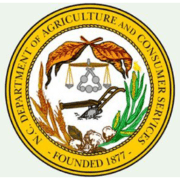First Round of State’s Agriculture Disaster Checks Headed to Farmers
-Press Release, NCDA&CS
Agriculture Commissioner Steve Troxler announced today that the first round of checks from the state’s $240 million Agricultural Disaster Relief Program of 2018 have been sent to farmers.
“More than $15.2 million in payments were mailed today, and a second batch will go out Friday, Feb. 1,” Troxler said. “By week’s end, we anticipate having around 2,000 applications processed.”
Nearly 7,000 applications for assistance were submitted to the N.C. Department of Agriculture and Consumer Services as part of the program. The N.C. General Assembly unanimously approved funding in response to more than $1.2 billion in estimated agricultural losses from Hurricane Florence and Tropical Storm Michael. Gov. Roy Cooper signed the legislation into law.
The applications are being processed randomly and are not being done on a county-by-county basis. Complete applications, not missing any information or documentation, are being processed first. Applications missing information will require follow-up calls in order to be verified and approved.
“This is the most important thing I have worked on since becoming Ag Commissioner,” Troxler said. “Agriculture is the backbone of our economy and it was absolutely pummeled in 2018. Many farmers are hurting and may not be able to secure funding to start the 2019 growing season. While this money does not come close to making whole the crop losses, I hope it will help farmers get financing for the coming year and help jump-start the economies of rural North Carolina.”
A total of 70 of the state’s 100 counties received a presidential or secretarial disaster declaration, qualifying farmers for the program.
The federal government shutdown created some delays in getting applications processed, but work is continuing to verify and approve the remaining applications.
Applicants had to submit the Farm Service Agency form 578 with their applications, which includes acreage being grown.
Other information considered in determining payments includes the five-year average price for commodities, the county average yield and the county estimated losses, which were determined by an ad-hoc committee made up of county FSA officials, cooperative extension agents, forest service staff and soil and water conservation district staff.
Checks will continue to be processed weekly as they are verified and approved.

